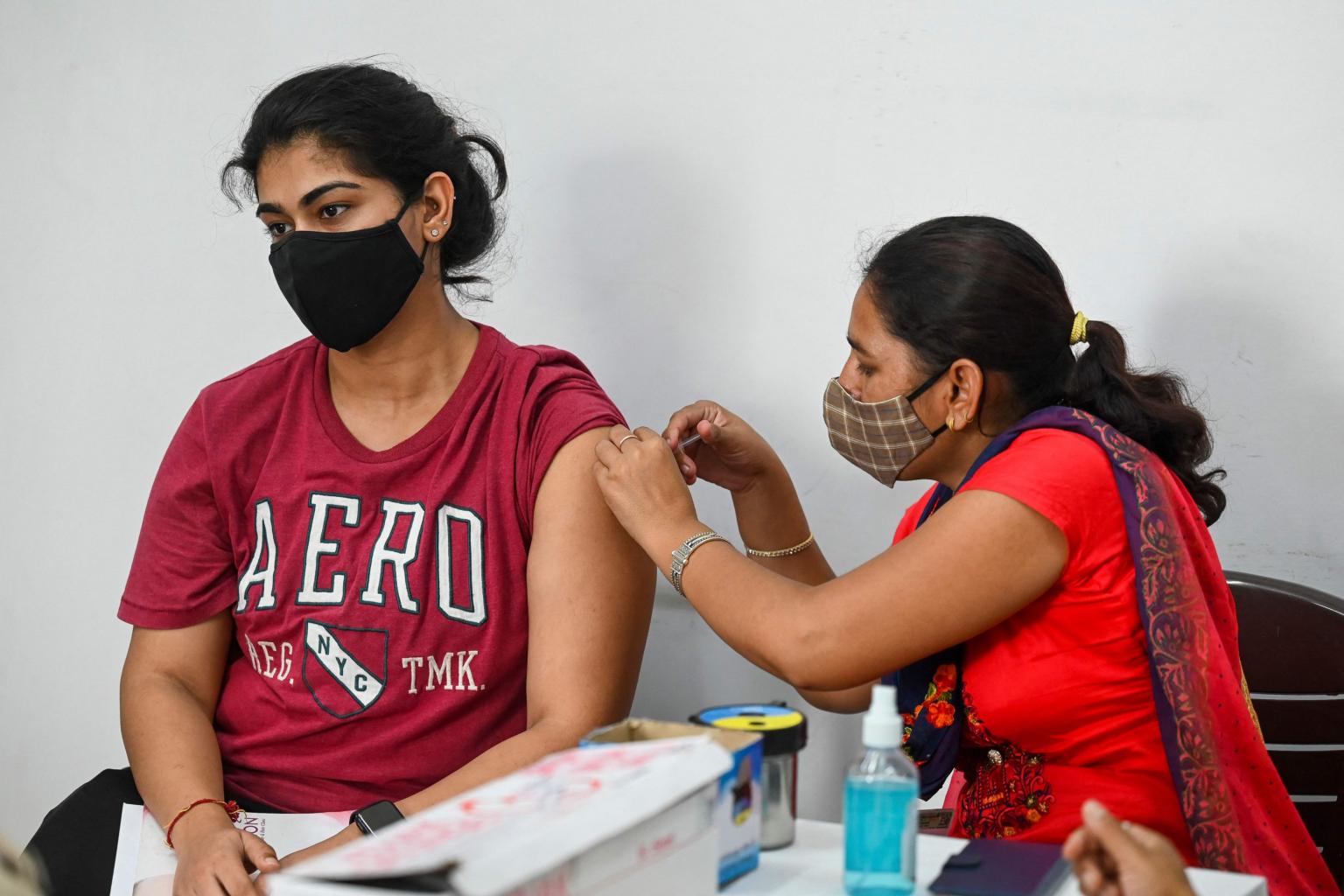India's Covid-19 vaccination pace expected to dwindle from first day record
Sign up now: Get insights on Asia's fast-moving developments

Since May, India has distributed an average of fewer than 3 million doses each day.
PHOTO: AFP
BENGALURU (REUTERS) - India's vaccinations over the next few weeks could fall short of the blistering pace set on the first day of a federal campaign, unless it makes inroads in a vast hinterland and bridges a shortage of doses, experts said on Tuesday (June 22).
The 8.6 million doses injected on Monday represented a record twofold jump as India kicked off free inoculation for all adults, reversing a policy for individual states and hospitals to buy vaccines for those aged 18 to 44.
"This is clearly not sustainable," Dr Chandrakant Lahariya, an expert in public policy and health systems, said. "With such one-day drives, many states have consumed most of their current vaccine stocks, which will affect the vaccination in days to follow."
The inoculation effort in the world's second-most populous nation had covered just about 5.5 per cent of all the 950 million people eligible, even though India is the world's largest producer of vaccines.
A devastating second wave of infections during April and May overwhelmed medical staff and facilities, killing hundreds of thousands. Images of funeral pyres blazing in carparks and open spaces spurred questions over the chaotic vaccine roll-out.
Since May, India has distributed an average of fewer than three million doses each day, far less than the 10 million health officials say is crucial to protect the millions vulnerable to new surges.
Particularly in the countryside, where two-thirds of a population of 1.4 billion lives and the healthcare system is often overstretched, the drive has faltered, experts say.
Maintaining the pace of the vaccination effort will prove particularly challenging when it comes to injecting the younger population in such "under-served" areas, said Delhi-based epidemiologist Rajib Dasgupta.
Widespread vaccine shortages since May have worsened the divide between urban and rural areas, as many younger people in cities turned to private hospitals, paying between US$9 (S$12) and US$24 a dose in the rush to protect themselves from the virus.
Such regional gaps in healthcare are exacerbated unless comprehensive data is made available on vaccinations, among others factors, said Professor Bhramar Mukherjee, an epidemiologist at the University of Michigan.
The authorities in New Delhi said more than eight million residents had yet to receive a first dose, and added that inoculating all the adults in the capital would take more than a year, at the current pace.
India is currently using AstraZeneca's vaccine, made locally by the Serum Institute of India (SII) and homegrown shot Covaxin by developer Bharat Biotech.
Last week, Serum Institute had said it plans to raise its monthly production to around 100 million doses or more from July. Bharat Biotech has estimated 23 million doses in June.
On Tuesday, television channel CNBC-TV18 reported that phase-3 data for Bharat Biotech's Covaxin showed an efficacy of 77.8 per cent.
India may soon have a mass commercial roll out of Russia's Sputnik V and government hopes to import vaccines this year from major drug makers such as Pfizer.
"With the currently projected vaccine supply for the next few months, the maximum daily achievable rate is 4 million to 5 million a day," Lahariya said.
Even as new infections have dropped nationwide to their lowest in more than three months, experts expressed concern over the transmissibility of the variants driving infections in India and spreading worldwide and urged a faster vaccination effort.
Over the past 24 hours India reported 42,640 new infections, its lowest figure since March 23, along with 1,167 deaths. Its tally of infections now stands at 29.98 million, with a death toll of 389,302, health ministry data showed.


